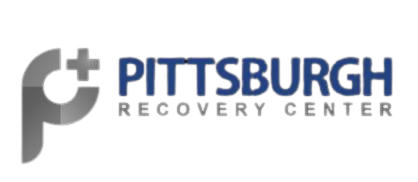Explore our addiction treatment services at Pittsburgh Recovery Center.

Substance abuse is a widespread issue that affects individuals and families across all walks of life. It can lead to significant physical, emotional, and social consequences, making it difficult for individuals to regain control without professional help. Addiction doesn’t discriminate—people from all backgrounds can find themselves caught in its grip, often feeling isolated and hopeless.
While outpatient care may be suitable for some, the complexities of addiction often require a more intensive and immersive approach—this is where inpatient rehab becomes vital. The structured environment of inpatient treatment provides stability and support that is essential for individuals looking to break free from the cycle of substance use.
At Pittsburgh Recovery Centers, we understand that seeking treatment is a courageous and essential first step toward recovery. Our inpatient rehab program offers a safe, compassionate, and structured environment where healing can begin. With personalized care and comprehensive treatment strategies, we help clients address the root causes of addiction and lay the foundation for lasting recovery.
Everyone seeking treatment has a unique history, triggers, and challenges. Effective inpatient care must acknowledge and adapt to each individual’s unique circumstances to be truly impactful. Inpatient treatment offers clients the opportunity to focus entirely on their recovery without the distractions and pressures of daily life.
Stability is essential during recovery. Our facility provides a controlled, nurturing space free from distractions and triggers, where clients can focus entirely on healing. This environment encourages vulnerability and introspection, both of which are crucial to overcoming addiction.
Our team develops individualized treatment plans based on clinical assessments and evidence-based therapeutic approaches. These plans evolve with the client’s progress and are designed to address addiction at its root—emotionally, physically, and psychologically.
Substance use disorders often coexist with mental health challenges like anxiety, depression, or trauma. Our integrated dual diagnosis treatment approach addresses both conditions concurrently, enhancing recovery outcomes and improving overall well-being.
Our clinicians and support staff are not only highly qualified but also deeply compassionate. Their trauma-informed care ensures clients feel heard, respected, and supported throughout their recovery.
Connection is a powerful tool in recovery. Group therapy sessions and shared experiences foster a sense of belonging, accountability, and mutual encouragement, helping clients stay engaged and motivated.
Our inpatient rehab program is designed to meet each client where they are in their journey and provide them with the tools and support they need to succeed. Clients benefit from a holistic and comprehensive recovery approach, including medical, psychological, and emotional care.
Every client’s journey begins with an in-depth clinical assessment, the foundation for their entire treatment experience. During this phase, our experienced clinicians conduct a detailed evaluation that encompasses a wide range of factors, including substance use history, physical health, mental health conditions, family dynamics, past trauma, and lifestyle habits. This comprehensive intake process ensures we fully understand the individual’s unique challenges and strengths.
We also take time to understand each client’s personal goals, values, and motivations for seeking recovery. Whether someone wants to restore family relationships, return to work, or simply find peace within themselves, we use those aspirations to shape a meaningful path forward.
For many clients, the first step in inpatient rehab is detoxification. Our medically supervised detox program is designed to manage withdrawal symptoms safely and comfortably. Clinical staff are available 24/7 to monitor vitals, administer medications when needed, and provide emotional support. Detox provides a clean slate for clients to begin their recovery journey.
Our therapy model blends traditional, evidence-based methods with holistic practices to ensure we treat the whole person. This includes:
This integrated model helps individuals discover new coping mechanisms, improve self-awareness, and develop lasting strategies for maintaining sobriety.
Recovery doesn’t end with the completion of inpatient rehab—it’s a lifelong journey. We place a strong emphasis on relapse prevention and skill development. Clients learn to identify their triggers, practice healthy coping strategies, and create action plans for navigating stress and cravings post-treatment. These life skills empower clients to maintain long-term sobriety and thrive outside of the treatment environment.
One of the most critical components of inpatient care is preparing clients for life after treatment. Our aftercare planning process begins early in the rehab experience and includes referrals to outpatient therapy, support groups, sober living options, and alumni programs. Each plan is tailored to ensure clients leave our facility with a robust support system and a roadmap for sustained recovery.

Partial hospitalization is our highest level of care. Partial Hospitalization is a structured Substance Abuse treatment program that runs for 5 days a week 4-6 hours a day.

In IOP, you attend therapy, learn to maintain sobriety, and develop a supportive peer network to begin transitioning into a lifelong recovery program. IOP is 3-5 days a week, 3 hours a day.

Outpatient therapy is an ideal option for people who are motivated to maintain abstinence. Outpatient is 1-2 days a week, 2-3 hours a day.
Choosing inpatient treatment at Pittsburgh Recovery Centers offers numerous advantages that can make all the difference in the success of one’s recovery journey.
The daily structure of inpatient rehab promotes stability and accountability. Routines help re-establish a sense of order, which can be incredibly beneficial for individuals whose lives have been disrupted by addiction. Clients follow a carefully planned schedule that includes therapy sessions, wellness activities, meals, and downtime.
Round-the-clock access to medical and therapeutic support ensures that clients receive immediate care for physical or emotional needs. This consistent support fosters safety, trust, and peace of mind, especially in the early and more vulnerable stages of recovery.
Being fully immersed in a healing environment allows clients to disconnect from everyday stressors and focus solely on recovery. This separation from outside influences often accelerates emotional growth and therapeutic breakthroughs.
The communal nature of inpatient rehab allows individuals to form strong bonds with peers who understand what they’re going through. These relationships offer mutual encouragement and accountability during and after treatment. Many clients continue to lean on these connections for support in long-term recovery.
Clients receive personalized attention and care, ensuring their treatment plan aligns with their unique history, preferences, and challenges. The intensity and depth of inpatient rehab allow for real progress to be made in a condensed timeframe.
From the moment clients enter our facility, we are focused on their long-term recovery. Through relapse prevention training, practical life skills development, and robust aftercare planning, we provide a foundation that supports success beyond inpatient treatment.
Understanding how to finance inpatient treatment is an important part of recovery planning. At Pittsburgh Recovery Centers, cost should never hinder receiving high-quality care. We work with clients and families to explore various payment options and resources.
Many private health insurance plans cover some or all of the cost of inpatient drug rehab. Our admissions team can help verify your insurance benefits and explain the services included. We accept a wide range of PPO insurance plans and will advocate on your behalf to ensure you get the coverage you deserve.
Some clients prefer or need to pay out-of-pocket for treatment. To make care more accessible, we provide clear, upfront pricing and flexible payment options. Our team can help create a payment plan that works for your budget.
Financing may be a helpful option when insurance coverage is limited or unavailable. We partner with third-party healthcare lenders that offer low-interest financing to spread treatment costs over manageable monthly payments.
In some instances, partial scholarships or sliding scale options may be available for those who qualify. Our team is here to help guide you through any available resources and work with you to find a path to treatment that meets your financial situation.
The most crucial step is to contact us. Our admissions specialists are ready to discuss your options, verify insurance, and answer any questions.
We are an in-network provider for Highmark, Blue Cross Blue Shield of Pennslyvania, UPMC, and Geisinger. We accept most PPO & POS insurance plans.










Deciding to seek help for addiction is one of the most powerful and life-changing decisions a person can make. At Pittsburgh Recovery Centers, we are committed to walking alongside our clients every step of the way, offering compassionate care, professional expertise, and unwavering support.
If you or someone you love is struggling with substance use, don’t wait to get help. Our experienced team is here to provide guidance and answer any questions you may have about our inpatient drug rehab program in Pittsburgh. Whether you’re reaching out for yourself or on behalf of a loved one, we are here to help you make an informed and empowering decision. Contact us today.

